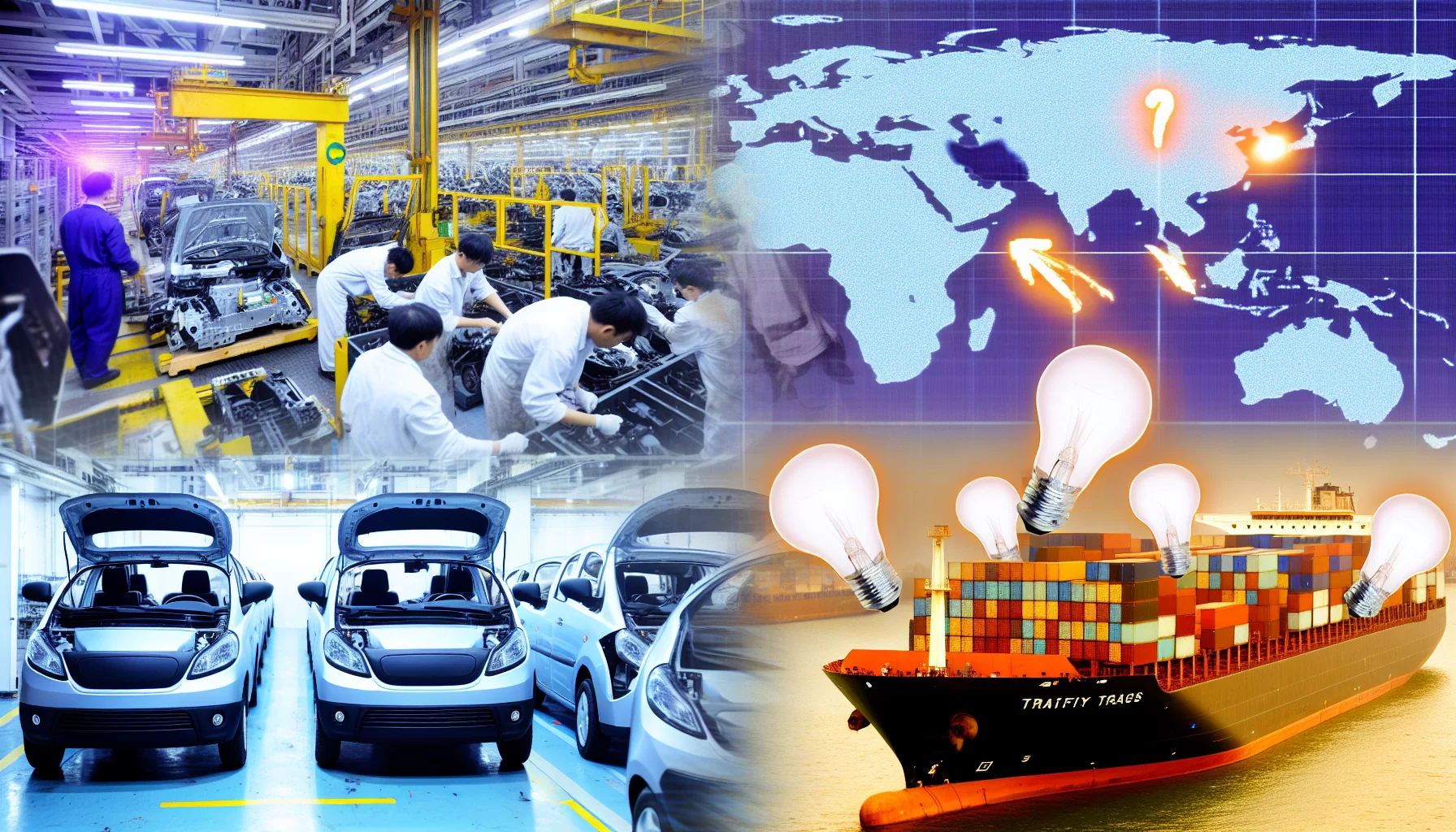Chinese electric vehicle manufacturers bold expansion into Europe amid tariff concerns

As a tech enthusiast and writer, I always keep an eye on the latest trends in different sectors – including the dynamic world of electric vehicles (EV). An interesting development in the industry is how Chinese EV manufacturers are expanding their operations into Europe despite the looming threat of tariffs. This is a significant move that could shift the balance of power in the global EV market. Let me provide you with a comprehensive view of this situation.
Chinese EV makers push into Europe
Chinese EV manufacturers are steadily penetrating the European market as they navigate an increasingly complex landscape of trade practices. Despite the potential imposition of tariffs, these Chinese brands are undeterred and continue to increase their European operations. Brands such as BYD are not only selling EVs but also establishing manufacturing bases in European countries which is an essential strategic point to note. This move not only helps these companies cater to the local demand but also allows them to bypass potential tariff issues by producing within the continent.
Why is Europe an attractive market for Chinese EV makers?
The rising appetite for EVs in Europe comes as no surprise given that the continent is at the forefront of combating climate change and reducing carbon emissions. This has created an increasingly favourable environment for EVs, making it an attractive market for manufacturers. China, being at the forefront of the EV industry globally, is striving to take advantage of this opportunity by expanding into this receptive market.
Tariff threats and potential implications
The potential of additional tariffs on Chinese goods, including EVs, remains a significant concern for the manufacturers. If imposed, it would escalate the economic tension between China and western countries, inevitably impacting the EV market. However, the Chinese EV manufacturers’ strategic move to set up production facilities within Europe cleverly mitigates this risk. Instead of relying solely on imports, which would be susceptible to tariffs, they can produce vehicles locally – a step that may keep cost inflation in check despite possible economic turbulence.
What does this mean for the European consumer?
For the European consumer, this could mean greater access to a wider variety of EVs. As Chinese manufacturers increase their presence in Europe, consumers could enjoy a more diverse marketplace with more choices and potentially more competitive pricing. It’s also worth noting how this shake-up in supply might influence Eastern and Western EV technology fusion, driving further advances in the industry.
To wrap it up, the Chinese EV manufacturers’ move to extend their foothold in the European market, despite looming tariff threats, is a significant event that will undoubtedly shape the future of the global EV industry. While the exact implications of this development are yet to be seen, it presents a fascinating intersection of technology, commerce, and global economic dynamics. As the situation evolves, I’ll continue to monitor and share insights into this important turning point in the tech world.
Liam Nguyen is a tech enthusiast and writer with a genuine passion for all things related to technology and the web. At the age of 32, Liam has already carved out a niche for himself as a go-to source for insights on emerging tech trends, gadget reviews, and practical advice for navigating the digital age. With a Bachelor’s degree in Computer Science from a well-known tech university, Liam combines his technical expertise with a clear, accessible writing style.
Starting his career as a software developer, Liam quickly realized that his true calling was in demystifying technology for the masses. He transitioned to tech journalism, where he now serves as a contributor to a popular online technology news platform. In his articles, Liam covers a broad spectrum of topics, from the latest smartphone releases to in-depth guides on cybersecurity, aiming to keep his readers informed and ahead of the curve.
Liam’s approach to writing is grounded in the belief that technology should empower and connect people. He has a particular interest in open-source projects and the democratization of technology, themes that frequently appear in his work. Liam’s ability to explain complex technical concepts in an engaging and straightforward manner has endeared him to a diverse audience, from tech aficionados to novices looking to get the most out of their devices.
Aside from his written work, Liam is active in online tech communities, participating in forums and social media discussions. He’s also been known to guest lecture at his alma mater, sharing his journey and inspiring the next generation of tech enthusiasts.
Liam’s dedication to the tech community and his knack for clear communication make him an influential voice in the tech and web category, always eager to explore how technology can make our lives better and more connected.



